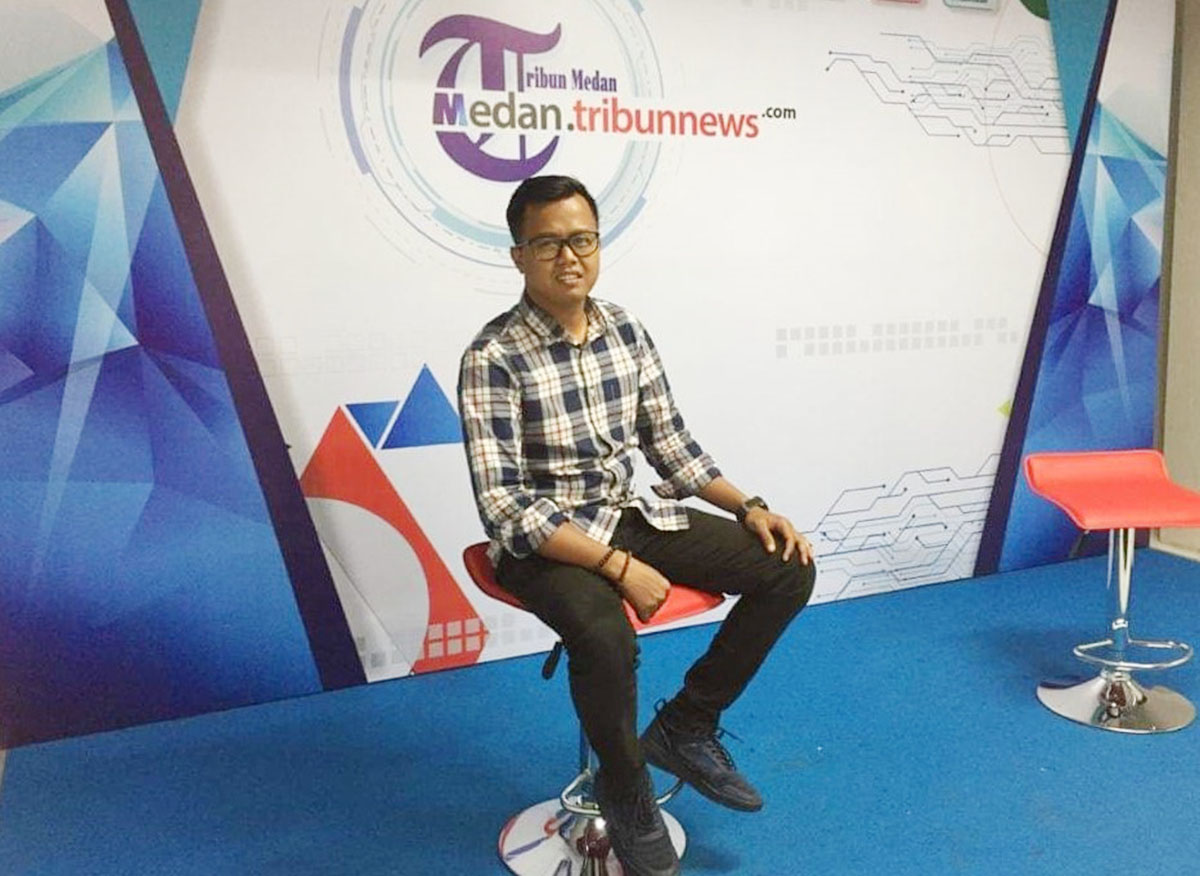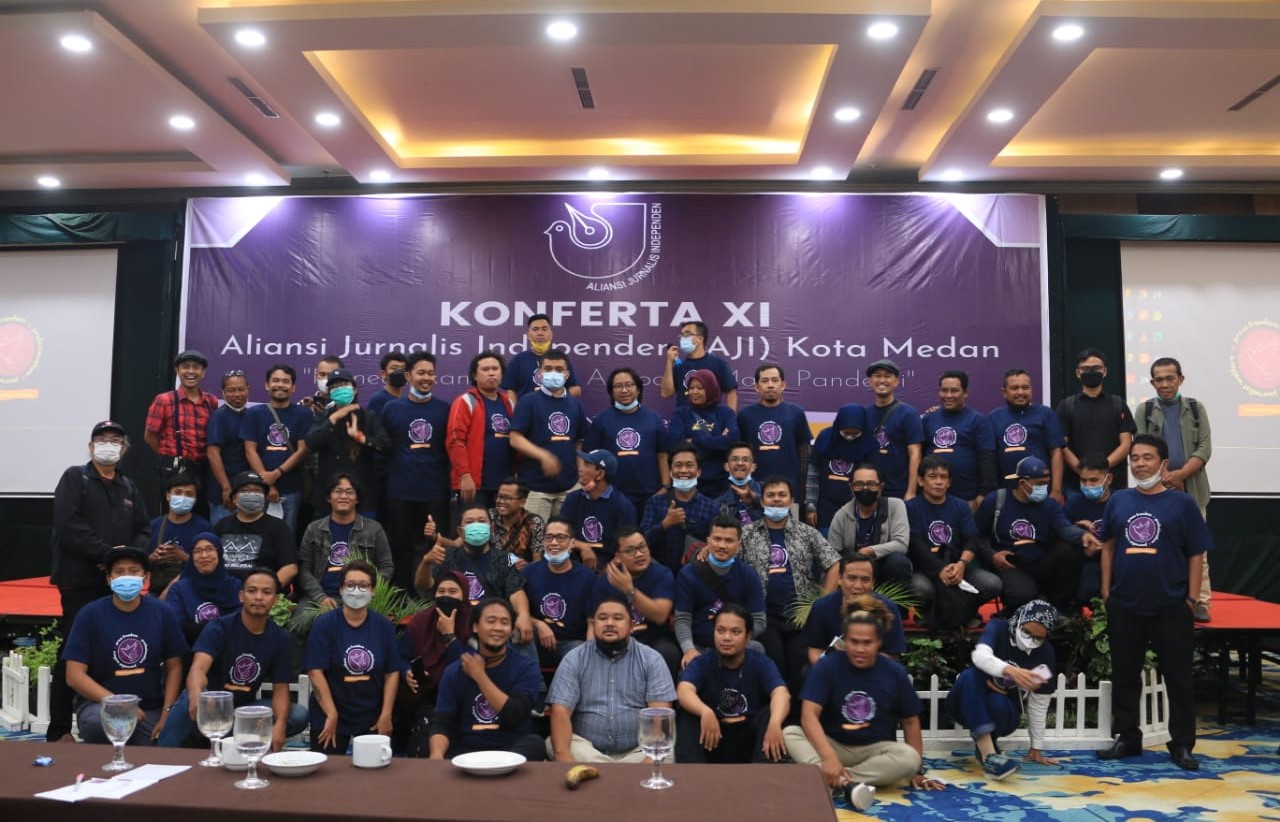Journalist Integrity in the Digital Age: Jefri Susatio #3 |

According to him, the problems of competency, professionalism, ethics and integrity of journalists are classic and common problems. “This means that there are still journalists who do not maintain integrity and are dishonest in their work.
However, there are also many journalists who uphold the values of the code of ethics and journalistic behavior. And, personally, for 10 years as a journalist, I have never received an envelope from reporting,” said the journalist who became an activist in the Alliance of Independent Journalists (AJI).
In fact, he was often tempted in the form of material things during his time as a journalist in the field, but all were rejected. For example, when he was reporting on the chaos on a state campus in Medan City, the lawyer for the campus in question offered him quite a lot of money not to publish the campus and he firmly refused.
Digital progress is currently very fast and changes are very fast. So you have to keep learning and adapting to fast digital changes.
As a journalist, you have to adapt to keep up with digital progress so you don't get left behind. To reject technological developments is tantamount to digging one's own grave.
“Currently, almost all journalists work using digital technology. Starting from cellphones, working operating systems, and always following very dynamic technological developments.
Journalists don't just work for humans, providing fast and accurate information. But it is also required to work for the machine. Fellow journalists are competing to be literate in digital technology to make work easier, that's his view.
"This is a simple example. Journalists used to work by recording. Then the sound recording is heard and recorded or written manually. Now with advances in digital technology, using certain applications, voice recordings can be recorded directly on the cellphone. The writing that came out was similar to the words of the source. So it's impossible for journalists to misquote," said Jefri, who once dreamed of becoming a lecturer.
The presence of artificial intelligence (AI) makes journalists feel that they can threaten their jobs.
In fact, many people think that the presence of AI can threaten many jobs.
But he thinks differently. According to him, the presence of AI can actually make it easier for journalists to work effectively and efficiently. He believes that creativity will be difficult to replace with AI. Journalism is a process that requires creativity in producing works. When journalists can adapt to AI, it can make work easier.
Almost all media companies strive for efficiency. The presence of AI, of course, can make companies reduce the cost burden. Like newsreaders can be replaced by AI.
“For example, TV One has started implementing AI, even though it's not perfect. Many other media companies are still in the research and development stage towards AI.” []

Integritas Jurnalis di Era Digital: Jefri Susatio #3
Masalah kompetensi, profesionalisme, etika dan integritas wartawan dinilainya seperti masalah klasik dan umum. “Artinya, tetap ada wartawan tidak menjaga integritas dan tidak jujur dalam bekerja.
Namun, banyak juga wartawan yang tegak lurus menjunjung nilai-nilai kode etik dan perilaku jurnalis. Dan, saya pribadi selama 10 tahun jadi wartawan tidak pernah terima amplop dari pemberitaan,” ungkap wartawan yang menjadi aktivis di Aliansi Jurnalis Independen (AJI) tersebut.
Padahal, ia sering mendapat godaan berupa materi selama menjadi wartawan di lapangan, tapi semuanya ditolak. Misalnya ketika ia meliput tentang kisruh kampus negeri di Kota Medan, kuasa hukum kampus bersangkutan menawarkan uang cukup banyak untuk tidak mempublikasi kampus itu dan ia tegas menolak.
Kemajuan digital saat ini sangat pesat dan perubahannya sangat cepat. Sehingga harus terus belajar dan beradaptasi dengan perubahan digital yang cepat.
Sebagai wartawan harus beradaptasi mengikuti kemajuan digital agar tidak tertinggal. Kalau menolak perkembangan teknologi sama saja menggali kuburan sendiri.
“Saat ini hampir semua wartawan bekerja memanfaatkan teknologi digital. Mulai dari ponsel, sistem operasi kerja, dan selalu mengikuti perkembangan teknologi yang sangat dinamis.
Wartawan tidak sekadar bekerja untuk manusia, memberikan informasi yang cepat dan akurat. Tetapi dituntut juga bekerja untuk mesin. Sesama wartawan berkompetesi untuk melek teknologi digital agar memudahkan kerja, begitu pandangannya.
“Contoh sederhana begini. Dulu wartawan bekerja dengan merekam. Lalu rekaman suara itu didengar dan dicatat atau ditulis secara manual. Kini dengan kemajuan teknologi digital, memanfaatkan aplikasi tertentu, rekaman suara bisa langsung tertulis di ponsel. Tulisan yang keluar serupa dengan ucapan narasumber. Jadi tak mungkin wartawan salah kutip,” papar Jefri yang pernah bercita-cita menjadi dosen.
Kehadiran kecerdasan buatan atau artificial intelligence (AI) membuat jurnalis merasa bisa mengancam pekerjaan.
Bahkan, banyak orang berpendapat bahwa kehadiran AI bisa mengancam banyak lapangan pekerjaan.
Tapi ia berpendapat berbeda. Menurutnya, kehadiran AI justru bisa memudahkan kerja-kerja jurnalis agar bekerja efektif dan efisien. Ia percaya bahwa kerja-kerja kreativitas akan sulit digantikan dengan AI. Jurnalis merupakan proses yang membutuhkan kreativitas dalam menghasilkan karya. Ketika jurnalis bisa beradaptasi dengan AI maka bisa memudahkan kerja.
Hampir semua perusahaan media berupaya efiensi. Kehadiran AI tentu saja bisa membuat perusahaan mengurangi beban biaya. Seperti pembaca berita dapat diganti dengan AI.
“Contoh TV One yang sudah mulai menerapkan AI meski belum sempurna. Banyak perusahaan media lainnya masih tahap penelitian dan pengembangan menuju ke arah AI.” []

